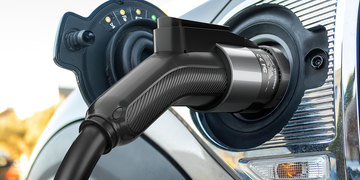Why is EV Battery Capacity Important? EV battery capacity is crucial because it determines how far an electric vehicle can travel on a single charge. A higher capacity means a longer driving range, providing more convenience and flexibility for EV owners. It also helps reduce range anxiety, giving drivers confidence for longer journeys without worrying about running out of charge. Advancements in battery technology and capacity have made electric vehicles more competitive and appealing as a sustainable transportation option. As battery technology continues to improve, capacity will play a significant role in shaping the future of eco-friendly transportation. In this article, we delve into the reasons why EV battery capacity is a pivotal factor influencing the performance, range, and overall usability of electric vehicles.
What are the Factors Affecting EV Battery Degradation?
Driving Range:
The primary and most immediate impact of battery capacity is on the driving range of an electric vehicle. Battery capacity is measured in kilowatt-hours (kWh), and a higher capacity generally translates to a longer driving range on a single charge. EV owners often prioritize a robust battery capacity to alleviate concerns about range anxiety and to comfortably undertake longer journeys.
Performance and Power:
Battery capacity is directly correlated with the power output of an electric vehicle. A larger battery capacity can deliver higher energy density, enabling the vehicle to generate more power and torque. This, in turn, contributes to improved acceleration and overall performance.
Charging Efficiency:
The efficiency of the charging process is influenced by battery capacity. A larger capacity battery can typically handle higher charging rates, reducing the time required for a full charge. This is particularly relevant as advancements in charging infrastructure continue to evolve, with faster-charging stations becoming more widely available.
Battery Longevity:
While the capacity itself is crucial, it is also essential for maintaining the long-term health of the battery. Battery management systems in modern electric vehicles often optimize charging and discharging patterns to prolong the life of the battery. Understanding the relationship between battery capacity and longevity is vital for EV owners looking to maximize the lifespan of their vehicle.
Weight and Design Considerations:
Battery capacity has implications for the weight and design of the electric vehicle. Balancing the desire for higher capacity with the need to keep the vehicle weight manageable is a challenge that manufacturers constantly navigate. Advances in battery technology aim to increase capacity without significantly increasing weight, contributing to enhanced efficiency and performance.
Why is EV Battery Capacity Important? In conclusion, electric vehicle battery capacity is a multifaceted aspect that directly impacts driving range, performance, charging efficiency, battery longevity, and overall vehicle design. As technology continues to evolve, advancements in battery capacity will play a pivotal role in shaping the future of electric mobility. For both manufacturers and consumers, understanding the importance of battery capacity is fundamental to making informed decisions about electric vehicle adoption and usage.
News-Telgeoot EV Charging Station
Why is EV Battery Capacity Important?





